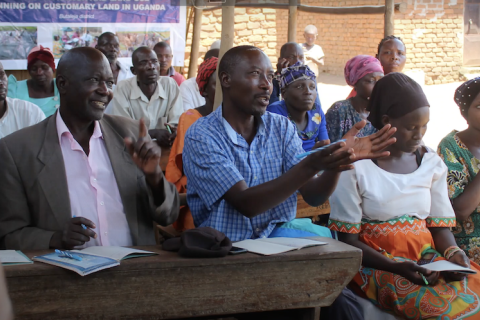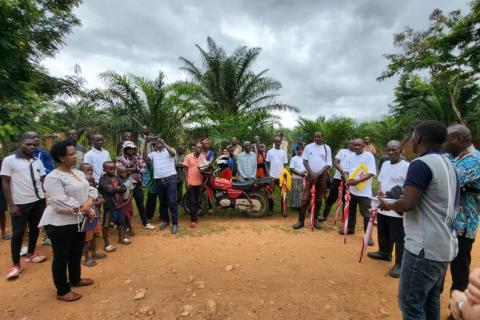Webinar Recap: Building Climate Resilience through Inclusive Land Governance
On the opening day of #COP28, we hosted a webinar, “Building Climate Resilience through Inclusive Land Governance,” that delved into the crucial role which inclusive land governance plays in building climate resilience.
LAND-at-scale Burundi: The need for a unified vision for inclusive and sustainable land governance
Burundi has the world’s highest hunger score and around 45 percent of the population is affected by food insecurity. The country copes with increasing scarcity of land as a result of increasing population size, returnees and IDPs and climate change. With the majority of Burundians depending on agriculture for their food and livelihoods, land scarcity makes this reliance on agriculture precarious. This pressure on land causes elevated levels of land disputes with over 55% of all court cases being related to conflicts over land.
Indigenous knowledge to maintain biodiversity in Colombia
From 6-18 November, Egypt hosts the COP27 Climate Summit. This year marks the 30th anniversary of the adoption of the UN Framework Convention on Climate Change. Despite this long trajectory and the progress made, climate change has increasingly severe effects across the world. The LAND-at-scale program acknowledges the central role of climate change. In a short series of blogs, the knowledge management team highlights the diverse impact that climate change has on communities across the world, and how LAND-at-scale projects contribute to adaptation and mitigation measures on the ground.
Event Recap: Unlocking the potential of the Voluntary Guidelines on Land Tenure in food system transformation
Co-organized by FAO, UNCCD, TMG and the Land Portal, this side event specifically aimed to discuss how integrating the VGGT into land degradation neutrality (LDN) initiatives can re-ignite momentum to enhance tenure security and unlock multiple social, economic and environmental benefits.
Seven takeaways from the 2022 Global Land Forum
Last week, the International Land Coalition (ILC) hosted its 9th Global Land Forum in Jordan - the first large in-person meeting of the land community for three years.
What Happened to the Eviction Tsunami?
Since the pandemic began, housing experts (including one of the authors of this article) have been predicting that the pandemic’s economic fallout would produce an eviction “tsunami” that could put as many as 40 million people out of their homes.
How do we channel the ESG investment boom towards low-income countries?
Private financial flows that are tracked against certain Environmental, Social and Governance (ESG) criteria reached record highs in 2020. But this boom may not be having a material impact, especially in low-income countries (LICs) which are most in need of it. Identifying and managing unknown financial risks can help re-balance the risk-reward ratio for sustainable investors.
Challenges in ‘pro-poor’ land registration: What lessons on crisis and resilience?
Over time, land registration has been associated with a diversity of desired outcomes, ranging from modernization and the promotion of sustainable agricultural production to protection of the livelihoods of small-scale producers notably women, peacebuilding or even nurturing good practices of local governance. In this session we have discussed, for a range of settings: How confident are we about the results of registration and formalization program? How have they been justified and have the ambitions been reached?
Who Benefits? Inclusive governance and equitable benefit sharing in the context of community forestry
Community forestry has the potential to contribute to sustainable livelihoods in poor and marginalized communities in and near forests. In practice, however, the benefits of collectively managed forests may end up in the hand of local elites. Based on presentations from Bolivia, the Philippines and Nepal, participants in this session discussed, among others: (i) What is the role and importance of individual benefits in a model that is based on collective forest rights?




